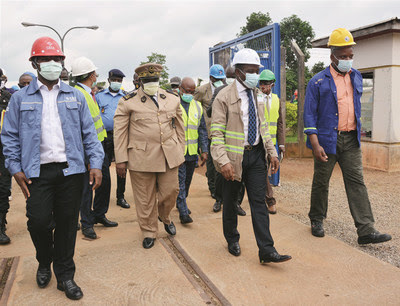Acquisition of key Australian financial communications and investor relations player, Citadel-MAGNUS will drive rapid growth and significant expansion
NEW YORK, Nov. 04, 2022 (GLOBE NEWSWIRE) — Morrow Sodali, the world’s leading shareholder engagement and governance advisory firm, announced today the acquisition of Australian financial communications and investor relations agency, Citadel-MAGNUS, its first since TPG Growth secured a majority stake in April of this year.
The Australian based acquisition represents a significant expansion of Morrow Sodali’s service offering in the APAC region to meet the rapidly growing global demand from corporations for strategic communications and investor engagement services.
The combination of Morrow Sodali and Citadel-MAGNUS brings together two trusted market leading consultancies to provide best in class strategic counsel and support to our clients. Citadel-MAGNUS will be fully integrated into Morrow Sodali enabling the firm to provide a seamless offering and the most comprehensive suite of investor relations and communications solutions to listed and private entities with the intention of rolling out the expanded services to other markets.
The acquisition marks a significant step forward in Morrow Sodali’s strategy to accelerate its growth by investing in services that create value for its clients world-wide.
Alvise Recchi, CEO of Morrow Sodali, commented, “As part of Morrow Sodali’s strategic global growth strategy, the addition of Citadel-MAGNUS will expand our service offering to encompass a broader suite of Board, C-Suite and ESG advisory, Investor Relations and Financial Communications services. We can’t wait to see the potential of this exciting opportunity realised as we continue to grow in new markets around the world.”
Christian Sealey, CEO of Morrow Sodali’s International Business added, “More and more, our clients are coming to us seeking advice and assistance across a wide array of areas covering shareholder communication, stakeholder engagement, capital markets intelligence, corporate governance and ESG advisory. Acquiring Citadel-MAGNUS enables us to provide strategic solutions for our clients and uniquely positions us to become their ongoing trusted partner of choice.”
Peter Brookes, Joint Managing Director of Citadel-MAGNUS said, “Our team is thrilled to be joining forces with Morrow Sodali. We are seeing a growing need to provide clients with an end-to-end offering across the financial calendar and increasingly complex event driven activity where good communication is paramount. The combination of our firms brings together two leading and trusted advisory companies that are deeply embedded in corporate Australia and who share a strong focus on delivering exceptional client service.”
About Morrow Sodali
Morrow Sodali is a global corporate advisory firm that provides clients with comprehensive advice and services relating to corporate governance, ESG, sustainability, proxy solicitation, capital markets intelligence, shareholder and bondholder engagement, M&A, activism and contested situations.
From headquarters in New York and London and offices in global capital markets, Morrow Sodali serves over 1,000 clients in more than 80 countries, including many of the world’s largest multinational corporations. Clients include listed and private companies, mutual fund groups, stock exchanges and membership associations.
In 2022, Morrow Sodali is celebrating its 50th anniversary and also secured a majority investment from TPG Growth, the middle market and growth equity platform of alternative asset firm TPG. This partnership will significantly advance the firm’s mission of providing clients worldwide with unrivalled strategic advice and comprehensive support, enabling them to maximize value and expertly manage stakeholder relations.
For more information about Morrow Sodali, please visit www.morrowsodali.com.
About Citadel-MAGNUS
Citadel-MAGNUS is a leading corporate and financial communication firm with offices in Sydney and Perth, servicing clients across Australia and internationally.
We have established a reputation for delivering outstanding results for our clients through trusted relationships, integrity and professional excellence. Our priority is to support clients’ business objectives through effective communication and a superior level of service.
Citadel-MAGNUS brings an unrivalled depth of financial markets, corporate and media experience to help companies address the challenges of today’s highly competitive and changing business environment. We have worked with companies in all sectors and of all sizes, and our success has led to established, long-term partnerships with business leaders and companies.
For more information, visit www.citadelmagnus.com.
CONTACT:
Elena Cargnello
Corporate Director, Marketing
+44 (0)20 4513 6913

GlobeNewswire Distribution ID 1000754955

